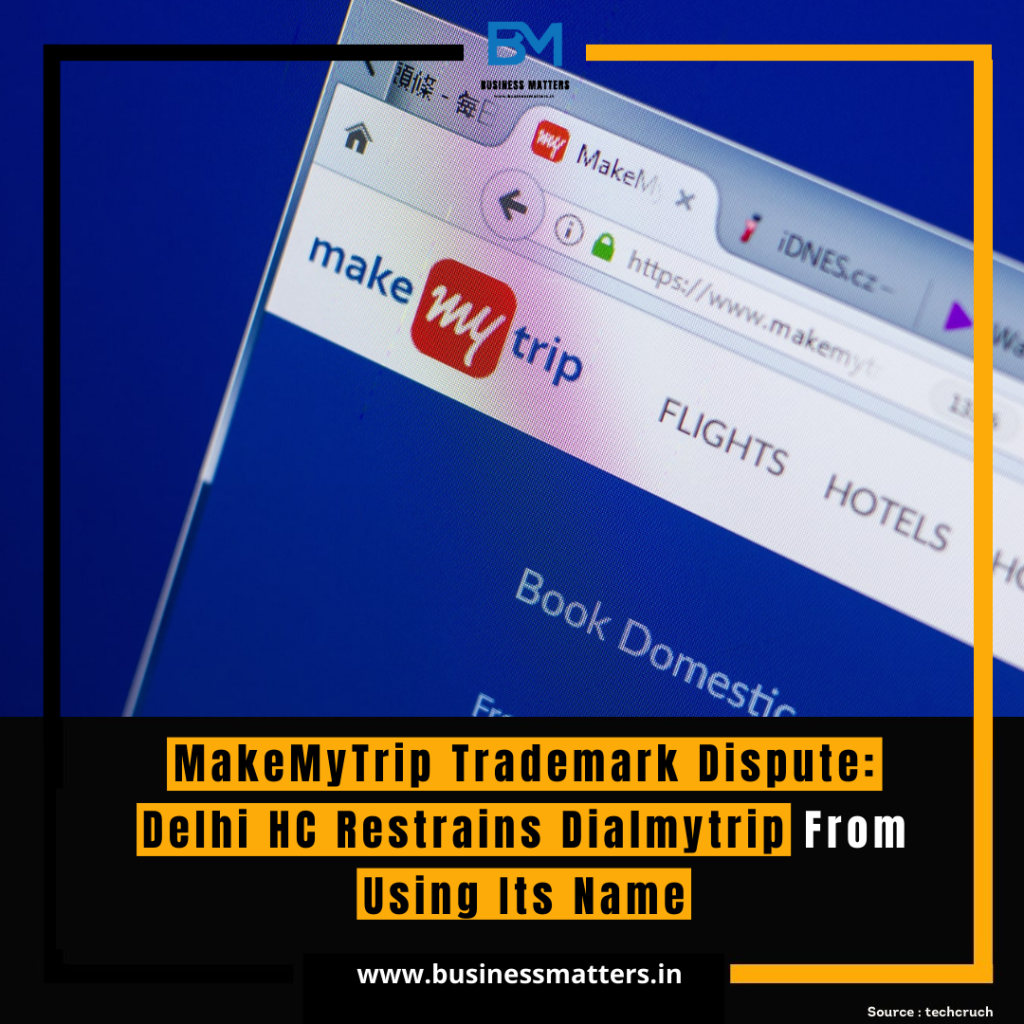In a recent development in the realm of trademark disputes within the travel industry, the Delhi High Court has issued a restraining order against Dialmytrip, preventing it from using a name that infringes upon the trademark of MakeMyTrip. This legal intervention comes as a response to MakeMyTrip’s plea, highlighting the potential confusion and brand dilution caused by the similarity in names.
MakeMyTrip, a prominent player in the online travel booking sector, filed a petition asserting that the name “Dialmytrip” used by another entity was deceptively similar and could lead to customer confusion. The court, recognizing the importance of protecting intellectual property rights, granted an interim injunction to MakeMyTrip, restraining Dialmytrip from using its current name until further legal proceedings determine the resolution of the dispute.
Trademark disputes in the digital age are not uncommon, especially in sectors where online platforms play a crucial role. The travel industry, characterized by fierce competition, brand recognition, and customer trust, is particularly sensitive to issues related to brand names and trademarks. Companies invest substantial resources in building and maintaining their brand identities, making legal action a common recourse when infringement is perceived.
MakeMyTrip, a well-established brand with a significant market presence, argued that the similarity in names could lead to confusion among consumers, potentially diverting business and causing reputational harm. The court’s decision to issue a restraining order reflects a commitment to protecting the rights of companies to safeguard their brand identity and reputation from potential misuse.
The legal dispute also highlights the broader challenges faced by businesses in the digital era, where the online presence of companies is a critical aspect of their success. A brand’s name is not just a label; it carries with it the goodwill, trust, and recognition that a company has built over time. Any similarity in names, especially in the digital realm, has the potential to create confusion among consumers who may inadvertently associate the offerings of one company with another.
Trademark disputes typically involve a careful examination of the similarity between the marks, the nature of the goods or services involved, and the likelihood of confusion among consumers. The court’s decision to grant an interim injunction suggests that there is a prima facie case for infringement, and MakeMyTrip has a legitimate concern that needs to be addressed through further legal proceedings.
While the legal battle unfolds, the case serves as a reminder to businesses about the importance of conducting thorough trademark searches before adopting a name. Clearing a name for use involves not only checking its availability but also considering the potential for confusion in the minds of consumers. Legal disputes can be time-consuming and financially draining, making proactive measures to avoid such conflicts crucial for businesses of all sizes.
In conclusion, the MakeMyTrip trademark dispute against Dialmytrip, resulting in a restraining order from the Delhi High Court, underscores the significance of protecting intellectual property rights in the competitive landscape of the online travel industry. The outcome of this case will likely have implications for how trademarks are perceived and protected within the digital space, emphasizing the need for businesses to be vigilant in safeguarding their brand identities.


